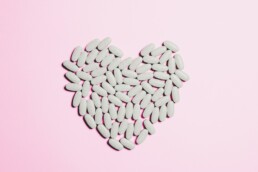Dr. Good Deed’s Health Clinic in Patna! Our team of skilled general physicians, Neurologist and gastroentrologist experts provides comprehensive healthcare solutions. Enjoy minimal wait times at our convenient Kankarbagh and Boring Road clinics. Experience the convenience of online consultations for quality healthcare from home.
What is Cholesterol?
Fat includes cholesterol. Your liver itself produces this fatty, waxy substance. It is essential for the production of certain hormones, vitamin D, and cell membranes.
Because fat is insoluble in water, it cannot freely circulate in your bloodstream. Your liver produces lipoproteins that help transport fat.
Lipoproteins are small molecules of protein and fat. They carry triglycerides, cholesterol, and fats through your bloodstream. Low-density lipoprotein (LDL) and high-density lipoprotein (HDL) are the two main types of lipoproteins.
Any cholesterol transported by simple cholesterol is called LDL cholesterol. If your blood levels of LDL cholesterol are high, you may be diagnosed with high cholesterol. Left untreated, dyslipidemia can lead to a number of health problems, including heart disease and stroke.

Symptoms
Elevated cholesterol levels can lead to a variety of symptoms that are commonly observed. These symptoms may include chest pain, shortness of breath, and heart palpitations. Additionally, individuals with high cholesterol may experience fatigue, weakness, and dizziness. In some cases, high cholesterol can also lead to the development of yellowish patches on the skin, known as xanthomas. It is important to note that not all individuals with high cholesterol will experience symptoms, and therefore regular cholesterol screenings are recommended. Treatment options for high cholesterol may include lifestyle changes, such as diet and exercise, as well as medication.
Causes
Age
The risk of total dyslipidemia increases with age because of the metabolic changes that occur with age, particularly the removal of LDL cholesterol from the blood by the liver.
Obesity
Having a body mass index (BMI) over 30 is considered obese and is associated with higher triglyceride, HDL, and LDL cholesterol levels. Although those who are overweight or obese according to BMI have high levels of fat, those with low BMIs may also suffer from excess fat.
Gender
Women over 55 or who have gone through menopause typically have LDL cholesterol levels that are lower than those of men. Men often have higher levels of HDL cholesterol than women do.
Physical Activity Level
Low HDL cholesterol might make it more difficult for your body to remove LDL cholesterol from the arteries, which can result from little to no physical activity in daily life. Moderate-to-vigorous exercise can increase HDL cholesterol levels and reduce the size of LDL cholesterol particles, making them more dangerous.
Diet
It is well recognised that eating a diet high in cholesterol, saturated fat, and trans fat causes elevated cholesterol levels. High quantities of saturated fat are found in the majority of animal and full-fat dairy products, as well as some oils that are solid at room temperature. After discovering that dietary cholesterol did not significantly correlate with the risk of developing heart disease, the AHA recently discontinued making explicit recommendations against it.
Heredity
You are also more likely to have high cholesterol if your family has a history of heart disease or high cholesterol. Familial hypercholesterolemia is a hereditary disorder that affects some people, although it is very uncommon. It causes extraordinarily high LDL levels at a young age and, if untreated, can result in early-onset coronary artery disease and heart attacks.

What effects does elevated cholesterol have on my body?
High cholesterol causes plaque to build up in your blood vessels over time. The clinical stage of this plaque development is atherosclerosis. Atherosclerosis increases the risk of Cardiovascular disease. This is because of the vital role your blood vessels play in your entire body. So there are consequences when you have an issue with one of your arteries.
The blood vessels in your body are like an intricate network of blood vessels. Plaque is like crud that clogs your home’s plumbing and slows down your shower drain. Pads adhere to the inner walls of your blood vessels, reducing the amount of blood that clots.
When your cholesterol is high, plaque begins to accumulate in your blood vessels. The longer you go untreated, the more plaque grows. As plaque grows, your blood vessels become narrowed or blocked.
High cholesterol risk factors include
- Obesity.
- Minimal level of exercise
- Tobacco products
- Family history of elevated cholesterol.
- kidney problems, diabetes, or hypothyroidism.
High cholesterol can affect people of different ages, genders, and ethnicities.

Lowering cholesterol methods
If you have high cholesterol, your doctor may suggest lifestyle changes to help reduce it. For example, they may offer advice on making changes to your daily routine, exercise, or diet. If you smoke, you may be told to quit.
Your doctor may also recommend medications or other treatments to help lower your cholesterol levels. It is recommended that you seek additional care from a specialist in specific situations.
- Dietary cholesterol reduction
- Medicines that lower cholesterol
- Natural home methods for controlling cholesterol
Problems caused by high cholesterol
If left untreated, high cholesterol levels can lead to atherosclerosis. This plaque can shrink your arteries over time. This disease is called atherosclerosis.
One dangerous condition is atherosclerosis. It can restrict the amount of blood that can flow through your veins. Plus, it increases your risk of harmful bleeding.
Numerous potentially fatal side effects of atherosclerosis include:
- Stroke
- Chest pain
- Chest pain, or angina
- Blood pressure is high.
- Disease of the peripheral vessels
- Long-term kidney disease
Bile imbalances caused by high cholesterol increase your risk of developing gallstones.

Why should I see a doctor?
It is recommended that individuals seek medical attention from their healthcare provider for cholesterol management. It is advisable to schedule an appointment with a physician if one experiences symptoms such as chest pain, shortness of breath, or numbness in the limbs. Additionally, routine check-ups are recommended for individuals with a family history of high cholesterol or other risk factors.
